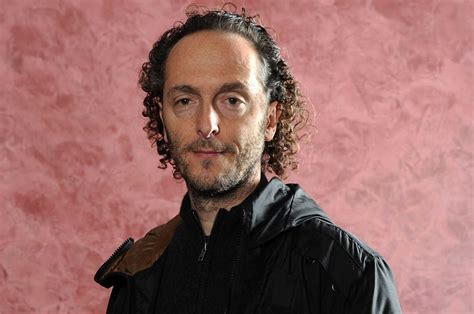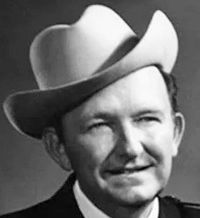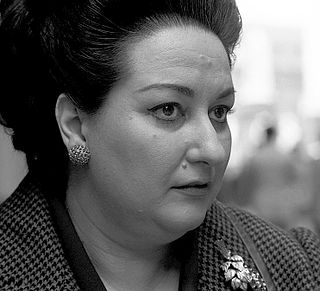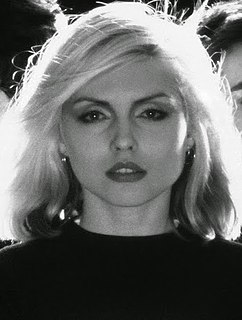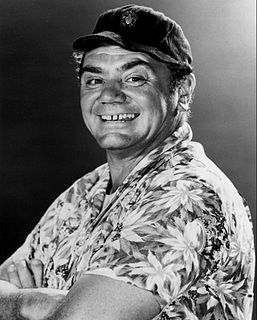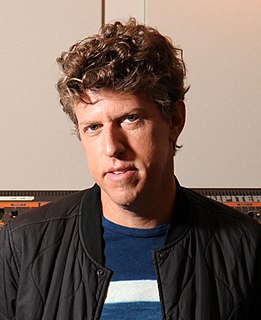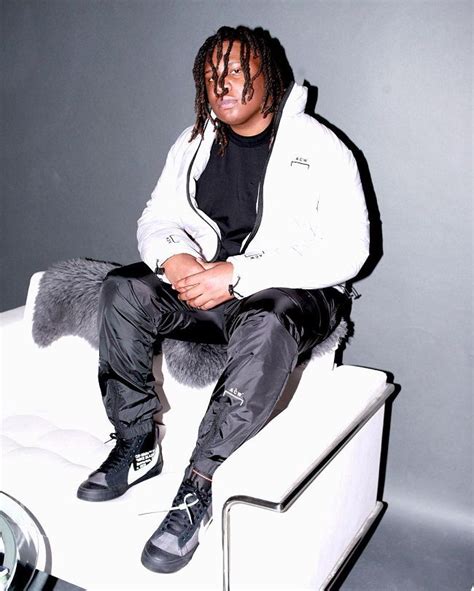A Quote by Emmanuel Lubezki
I did sound for a number of years, so I know the pain of the sound mixer on a set where everybody was talking.
Related Quotes
When I hear what we call music, it seems to me that someone is talking. And talking about his feelings, or about his ideas of relationships. But when I hear traffic, the sound of traffic - here on Sixth Avenue, for instance - I don’t have the feeling that anyone is talking. I have the feeling that sound is acting. And I love the activity of sound... I don’t need sound to talk to me.
When we sit in meditation and hear a sound, we think, 'Oh, that sound's bothering me.' If we see it like this, we suffer. But if we investigate a little deeper, we see that the sound is simply sound. If we understand like this, then there's nothing more to it. We leave it be. The sound is just sound, why should you go and grab it? You see that actually it was you who went out and disturbed the sound.
In fact, quite a lot of what I do has to do with sound texture, and, you can't notate that. You can't notate the sound of "St. Elmo's Fire." There's no way of writing that down. That's because musical notation arose at a time when sound textures were limited. If you said violins and woodwind that defined the sound texture; if I say synthesizer and guitar it means nothing - you're talking about 28,000 variables.
Think of the sound you make when you let go after holding your breath for a very, very long time. Think of the gladdest sound you know: the sound of dawn on the first day of spring break, the sound of a bottle of Coke opening, the sound of a crowd cheering in your ears because you're coming down to the last part of a race--and you're ahead. Think of the sound of water over stones in a cold stream, and the sound of wind through green trees on a late May afternoon in Central Park. Think of the sound of a bus coming into the station carrying someone you love. Then put all those together.
A lot of people forget that today. They come to the point where you walk on a set and the first thing you know you're looking at the sound man and you're saying to yourself, "How the hell can they get any sound when nobody is talking!" They get all mumbly. You can't make out what they're saying! And you're 6 feet away from them! Whereas in the old-time movies, you hear them, you understand every word they're saying, and you didn't have to put on your loudspeaker.
I'm very interested in vertical space.I want the players to listen to their sound in such a way that they hear the complete sound they make before they make another one. So that means that they hear the tail of the sound. Because of the reverberation, there's always more to the sound than just the sound.
Deep down, all directors feel like frauds - because it's built into the nature of the job. You're the jack of all trades and the master of none. The cameraman knows the camera, the sound man knows the sound equipment - and you? You can't do anything: You can't do the acting, you can't dress the set, you don't record the sound or shoot the images.
